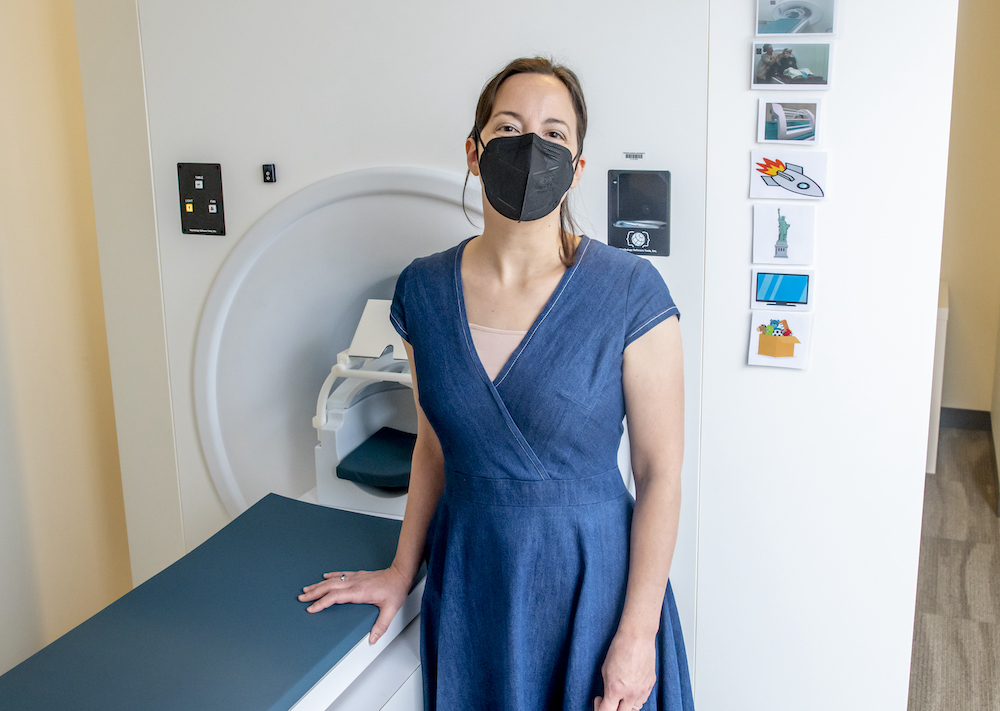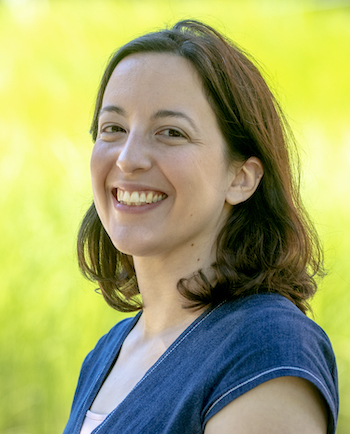
For most of her life, Allison Jack has aspired to improve the lives of autistic people. The George Mason University researcher had a childhood friend with autism and had witnessed some of the challenges neurodiverse individuals face. That experience combined with her natural curiosity about the brain made her determined to carry out her mission.
As she became more embedded in the field of autism, Jack learned that many autistic people, including those designated female at birth and those who are gender nonconforming, often receive delayed diagnoses, misdiagnoses, or no diagnoses at all. Past autism research has frequently overlooked both subsets of individuals. Jack believes that these discrepancies may be partially responsible for a poorer quality of life for those affected.
“For years now, the autistic community has strongly been speaking up about how research and public policy have not always accurately reflected the needs and desires of neurodiverse people,” said Jack, who is an assistant professor in the Department of Psychology in Mason's College of Humanities and Social Sciences and a member of the Institute for Biohealth Innovation.

Jack is a member of the Gender Exploration of Neurogenetics and Development to Advanced Autism Research Consortium, a National Institutes of Health-funded Autism Centers of Excellence (ACE) network focused on learning more about how sex and gender relate to biology, behavior, and the well-being of autistic children, teenagers, and young adults.
Her partners in this initiative include such local groups as the Center for Autism Spectrum Disorders at Children’s National and the Autistic Self-Advocacy Network and the Autistic Women and Nonbinary Network, two organizations that offer support to those diagnosed and promote autistic representation in research and public policy.
Inspired by ACE’s commitment to effectively engage autistic individuals and champion their equal representation, Jack wanted to build on their work. When she received a job offer from Mason, she knew she had found a university with similar values that would allow her to implement her plan.
“I wanted to set up an autism-friendly lab with heavy involvement from neurodiverse students, and Mason actively encouraged the idea,” said Jack. “Mason is very special in that way. I don't know that I've been in any place previously that would have been this affirmatively excited and accommodating.”
Jack’s lab fosters increased representation in research and provides an opportunity for neurodiverse individuals to receive scientific training so that they can assist in the design and execution of studies, another objective of autism advocacy groups. Jack believes autistic people should be involved in every level of autism research, and she finds their suggestions to be both enlightening and highly beneficial.
“I had one autistic graduate student propose that we have an infrastructure in place for current and potential autistic research participants to talk to us through text or online chat because they commonly feel very uncomfortable with other forms of communication we were using, like the phone,” said Jack. “As a neurotypical individual, I had never considered that before, and it was extremely eye-opening.”
Jack said she would like to see the introduction of more objective evaluations for autism. Current diagnostic measures are based on observation, which she believes may be a factor in late or missed diagnoses. Moving forward, she hopes that her lab’s work will result in more accurate tests that incorporate information about biology. Jack and her team are also utilizing Mason’s 3T MRI scanner to examine which regions in the brain may play a role in the development of autism.
While juggling multiple goals may seem daunting, Jack’s passion for helping the autistic community acts as her main motivator. She is also grateful for the contributions and insights of those who work alongside her.
“I love the brain and think it’s endlessly fascinating, but mostly I love my team,” Jack said. “It's such good fortune to get to work with people who are primarily concerned with ensuring that we're doing the best job possible of including people who might otherwise be ignored and representing the true breadth of experience out there.”
